Data Donation Module
The data donation lab has developed the Data Donation Module (DDM), an open source web application that facilitates the collection of data donations for academic research.
With DDM...
- researchers can create, manage, and monitor data donation projects through a graphical user interface.
- all data uploaded by participants are processed on the participant's devices, and data are only transmitted after explicit informed consent has been obtained.
- data donation projects can be enriched with survey data, either by utilizing the integrated questionnaire functionality of by linking it to external survey software (e.g., Qualtrics, Unipark etc.).
To learn more about the DDM, have a look at the documentation, read the accompanying paper, inspect the source code, or simply try it out (see below).
DDM for UZH Researchers
Members of the University of Zurich can use DDM hosted by the Data Donation Lab by simply logging in with their Switch Edu-ID:
DDM for Non-UZH Researchers
Researchers who are not members of the University of Zurich can try out DDM on our demo website:


